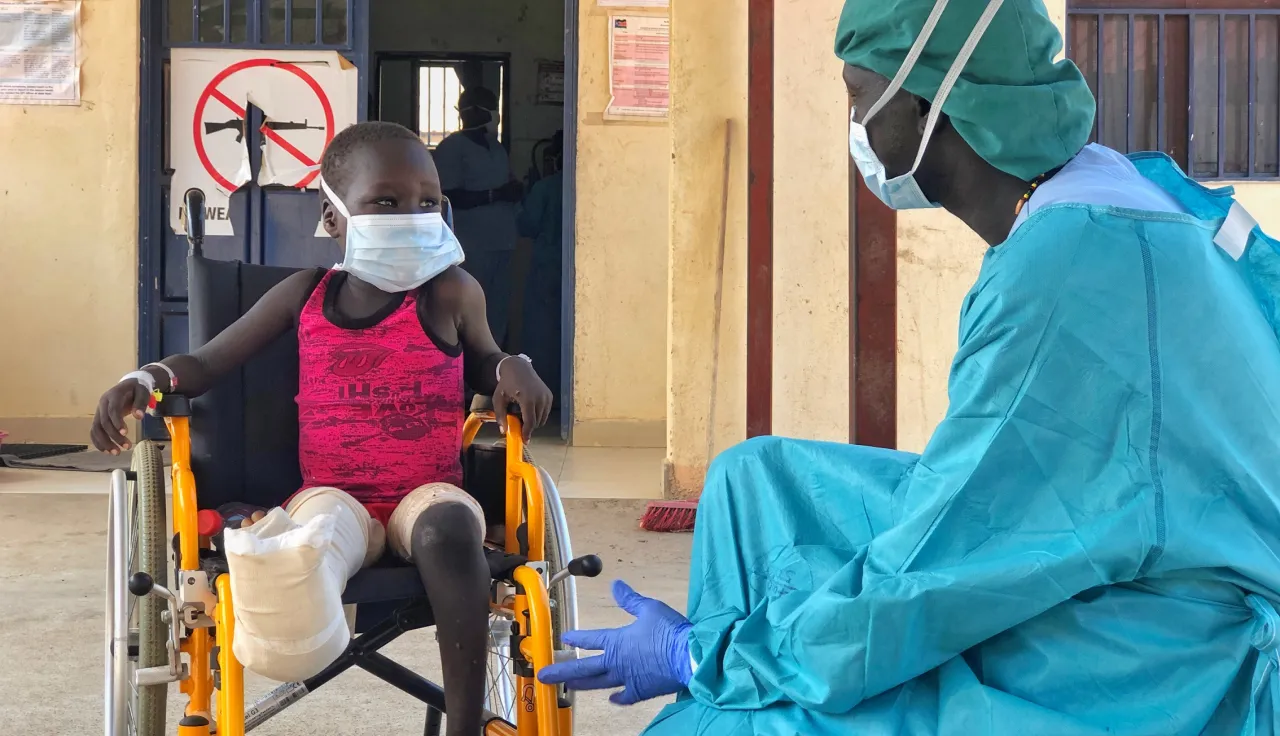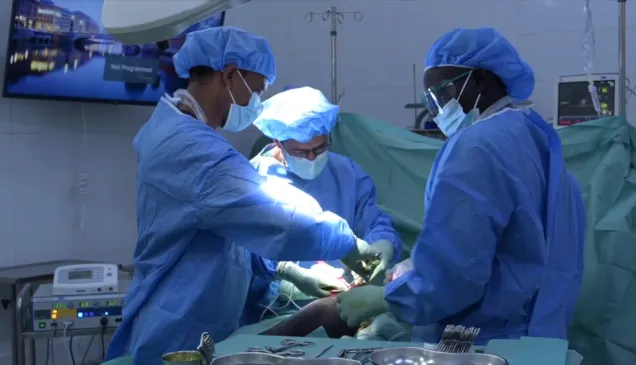Wolde-Gabriel Saugeron, who leads the International Committee of the Red Cross' team in Bor, Jonglei State, South Sudan, shares his fears that armed violence is erupting again, causing death, injury, and displacement.
Juba (ICRC)—Since I arrived in South Sudan in January, our team has witnessed two major eruptions of armed violence. We have entered a third and vicious round of fighting between armed youth that could – once again – result in hundreds dying, thousands being displaced and homes, crops, and all forms of livelihoods destroyed. We are hearing reports of smouldering tukuls in villages after fierce clashes as armed youth are said to be mobilizing across the state to carry out new attacks.
The COVID-19 pandemic limits how we at the International Committee of the Red Cross (ICRC) can safely carry out even life-saving humanitarian action to assist the families and communities we know will be devastated by the armed violence. Our fear is that should we see fighting erupt to the scale we saw over the last few months, more lives could be lost not only in the violence itself, but because we are not able to medevac the injured to the scale that we once could.
During the tragic episodes of violence in February and May, thousands of armed youth spent weeks mobilizing, preparing and trekking across Jonglei, which is about twice the size of Switzerland. By the time they reached already-fragile communities, weeks of whispers of imminent attacks had emptied towns and villages, leaving the elderly, women and children to bear the brunt of the attacks.
My colleagues had to triage wounded patients in a health centre in May. Those who could not find space in the building laid under the scorching sun with relatives gathered around them trying to chase away the flies from their open wounds in a desperate attempt to ease their pain.
In these situations, we cannot evacuate everyone in need to the medical facilities we run in Akobo and Juba for surgery. We must select the patients that meet the criteria our surgeons set and consider the difficult and sensitive security situation which can impact whether our planes and helicopters can land. We do our best to explain to pleading relatives why we can take some wounded and not others. At times like these, doing your best is not enough when you must choose to save few out of many.
For days now, our teams in Jonglei have been on-edge as the rumours of the third major eruption of armed violence become a terrifying reality. Unlike earlier this year, our ability to respond to medical and other humanitarian needs in the community has been hampered by the deadly COVID-19 pandemic. Our hospitals are full. COVID-19 means that we need to create more space between our hospital beds, which has reduced the number of people we can accommodate in our wards by 30 per cent. We cannot carry out any new medical evacuations of severely wounded patients until some of the beds free up.
Like the communities we serve, we are also anxious and tired. Our surgical teams are working overtime, with national and international travel restrictions making it difficult to bring in reinforcements. On top of this tiredness, there is the terrible sense of seeing the communities slipping back inexorably towards violence – a violence that no-one seems willing or able to prevent, despite the pattern of death, injury, and destruction it will surely bring.
This year began with hopes rising after some positive steps in South Sudan's peace process. From where we sit today in Jonglei State, the security and safety that peace is meant to bring to families and communities is slipping from their grasp. They need and deserve it most. We as humanitarians ultimately have limits on what we can say and do to preserve life, as COVID-19 has shown us.
These incessant cycles of armed violence must stop.
For further information, please contact:
Ali Yousef, ICRC Juba, +211 912 360 038
Aidah Khamis Woja, ICRC Juba, +211 925 230 500
Crystal Wells, ICRC Nairobi, +254 716 897 265




